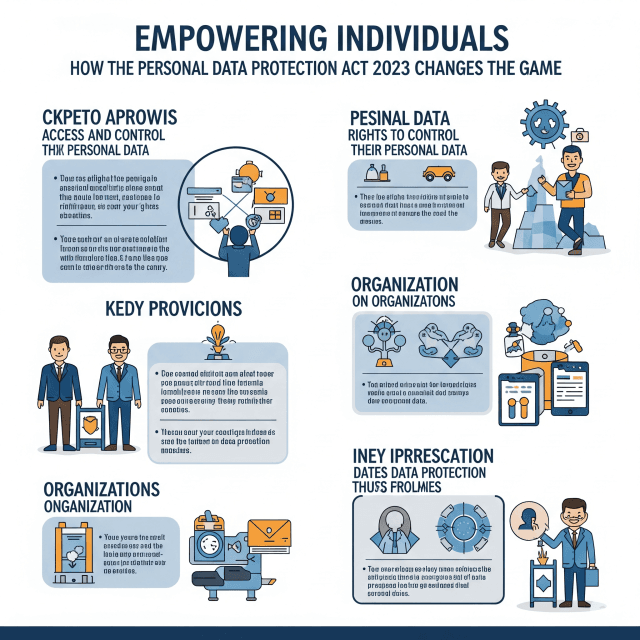In today’s digital age, personal data has become a valuable commodity, often treated as a mere resource by corporations and governments alike. The increasing reliance on technology highlights the urgent need for robust frameworks that prioritize individual privacy and data protection. Enter the Personal Data Protection Act (PDPA) of 2023, a landmark legislation that promises to empower individuals and reshape the landscape of data privacy.
Understanding the Personal Data Protection Act 2023
The PDPA 2023 is designed to provide a comprehensive legal framework that regulates the processing of personal data by both public and private sectors. The Act introduces key principles that aim to enhance transparency, accountability, and the protection of individuals’ rights over their personal data.
Key Features of the PDPA 2023
Enhanced Individual Rights:
The Act amplifies individual rights, allowing users greater control over their data. This includes the right to access their personal information, request corrections, and even demand the deletion of their data. Individuals can now hold organizations accountable for mishandling their sensitive information.Consent as a Cornerstone:
The PDPA emphasizes the necessity of obtaining explicit consent from individuals before their data can be collected or processed. It requires organizations to be transparent about how they plan to use this information, fostering a culture of trust between consumers and businesses.Data Minimization and Purpose Limitation:
Organizations are encouraged to adopt data minimization practices, collecting only the necessary information for specified purposes. This not only reduces the risk of data breaches but also respects individuals’ privacy.Stricter Penalties for Non-Compliance:
To ensure adherence, the Act imposes stiff penalties for organizations that fail to comply. This provision serves as a significant deterrent against negligence and fosters a culture of respect for personal data.- Data Protection Officers:
Organizations are now required to appoint Data Protection Officers (DPOs) to oversee compliance and act as a point of contact for individuals concerned about their data rights. This ensures that there is dedicated oversight for data protection practices within organizations.
Empowering Individuals
The PDPA 2023 fundamentally shifts the power dynamics regarding personal data. Here are a few ways it empowers individuals:
1. Proactive Control over Personal Information:
Individuals gain the ability to proactively manage their personal information. With clear guidelines on consent and access, they are no longer passive subjects but active participants in how their data is handled.
2. Building Trust:
As businesses align with the PDPA, the emphasis on transparency fosters trust. Consumers are more likely to engage with organizations that demonstrate a commitment to protecting their data, creating a win-win scenario.
3. Encouraging Responsible Data Practices:
With strict penalties in place, organizations are incentivized to adopt responsible data practices. This not only protects individuals but also encourages innovation as companies seek to create privacy-compliant solutions.
4. Raising Awareness and Education:
The implementation of the PDPA serves as a platform for raising public awareness about data privacy issues. Education campaigns can help individuals understand their rights and the importance of protecting their personal data.
Challenges and Considerations
While the PDPA 2023 heralds a new era of data protection, several challenges lie ahead. Organizations, especially small and medium enterprises, may struggle with compliance due to resource constraints. Moreover, the need for continuous education and awareness among the public is paramount to ensure that individuals can fully exercise their newly granted rights.
Conclusion
The Personal Data Protection Act 2023 represents a significant leap forward in the realm of data privacy. By empowering individuals with rights and control over their personal data, it sets a new standard for how organizations approach data management. As we navigate this transformative landscape, the ongoing dialogue between individuals, companies, and regulators will be crucial in shaping a future where privacy is respected, and individuals are empowered. Through collective efforts, we can ensure that the digital world remains a safe and respectful space for all.









